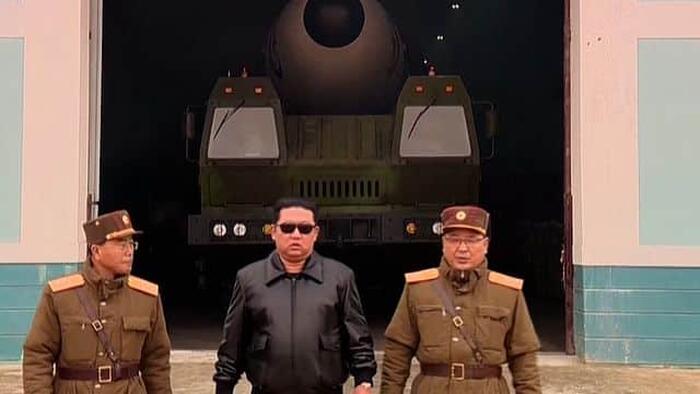In a recent address to North Korean military leaders, Kim Jong Un emphasized the critical need to expedite the development of the country’s nuclear arsenal, framing this urgency as a direct response to perceived threats from the West, particularly the United States. Kim articulated his concerns regarding the US’s strategic military collaborations in East Asia, specifically the transformation of its partnership with South Korea into a nuclear-centered alliance. He criticized the establishment of what he termed an “Asian NATO,” which consolidates military relations with both Japan and South Korea, viewing these developments as intolerable provocations against North Korea. In his speech, Kim underscored the increasing threats posed by US military maneuvers, joint exercises, and nuclear deployments in the region, asserting that these actions validate North Korea’s need to advance its nuclear capabilities.
Highlighting the significance of nuclear armament to national defense, Kim declared that North Korea’s nuclear force development is now an irreversible policy that requires timely readiness for operational action. He assured that the country would continually bolster its self-defense mechanisms, centering around its nuclear prowess, stating that their efforts would be limitless and relentless. This declaration underscores Kim’s commitment to enhancing North Korea’s military infrastructure and readiness amid escalating global tensions and antagonistic ties with the US and its allies, emphasizing the regime’s prioritization of national security above all.
In addition to citing regional tensions with the United States, Kim pointed to the broader geopolitical landscape, likening the current global dynamics to a “new Cold War.” He posited that the US and its allies are utilizing the conflict in Ukraine not just as a battleground against Russia but as a means to refine their military interventions globally. Kim suggested that Western support for Ukraine, coupled with military assistance to Israel, exacerbates international security issues and increases the likelihood of catastrophic conflicts, including a potential third world war. This perspective reflects North Korea’s increasing alignment with anti-Western narratives, using global military conflicts to galvanize domestic support for the regime’s military agenda.
The deterioration of US-North Korea relations has been particularly pronounced during the Biden administration, contrasting sharply with the relatively peaceful engagement seen during Donald Trump’s presidency. At the conclusion of Trump’s first term, a tentative diplomatic rapport was established, leading to North Korea observing a self-imposed halt on missile testing. However, under Biden, there has been a notable shift towards military escalation in the region as the administration enhanced the American military footprint in South Korea and sought deeper military cooperation with Japan. This strategic orientation has been interpreted by Kim as a direct threat, prompting North Korea to adopt a more aggressive military posture.
In response to what he perceives as an increasing threat level from the Biden administration, Kim has actively sought to ramp up missile tests and military drills in proximity to the Korean Demilitarized Zone (DMZ). Moreover, he has successfully positioned North Korea within a closer alliance with Russia, which has further altered the strategic equations in East Asia, thereby complicating the security landscape. The centralization of military capabilities and the formation of new partnerships reflect an adaptive and assertive North Korean stance that seeks to counterbalance US alliances and influence in the region.
Looking forward, the complexities surrounding North Korea’s military ambitions and international positioning will pose significant challenges for the incoming administration in 2025, whether it is Trump or another figure. With Kim Jong Un having significantly expanded his country’s missile capabilities and fortified ties with Russia, any future leader will likely confront a more emboldened and combative North Korean regime. The legacy of escalated military tensions and diminished diplomatic dialogues suggests that the new administration will have to navigate a fraught geopolitical landscape, potentially paving the way for renewed confrontations or new avenues for conflict resolution in East Asia. The implications of North Korea’s actions remain a critical focal point for international security and diplomatic efforts moving forward.

